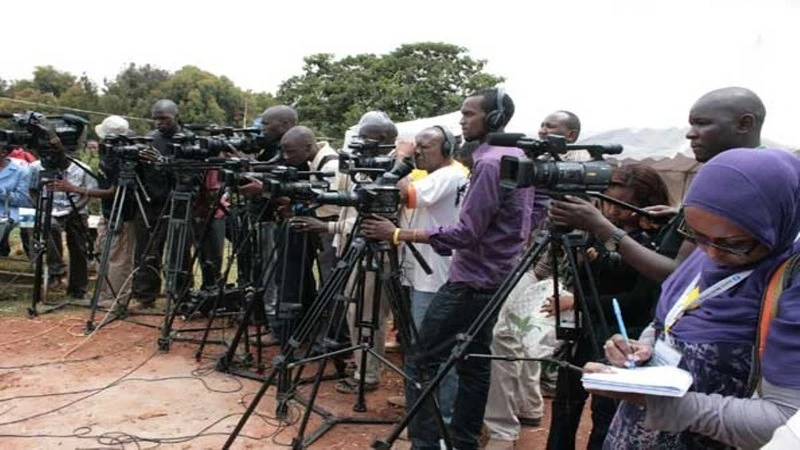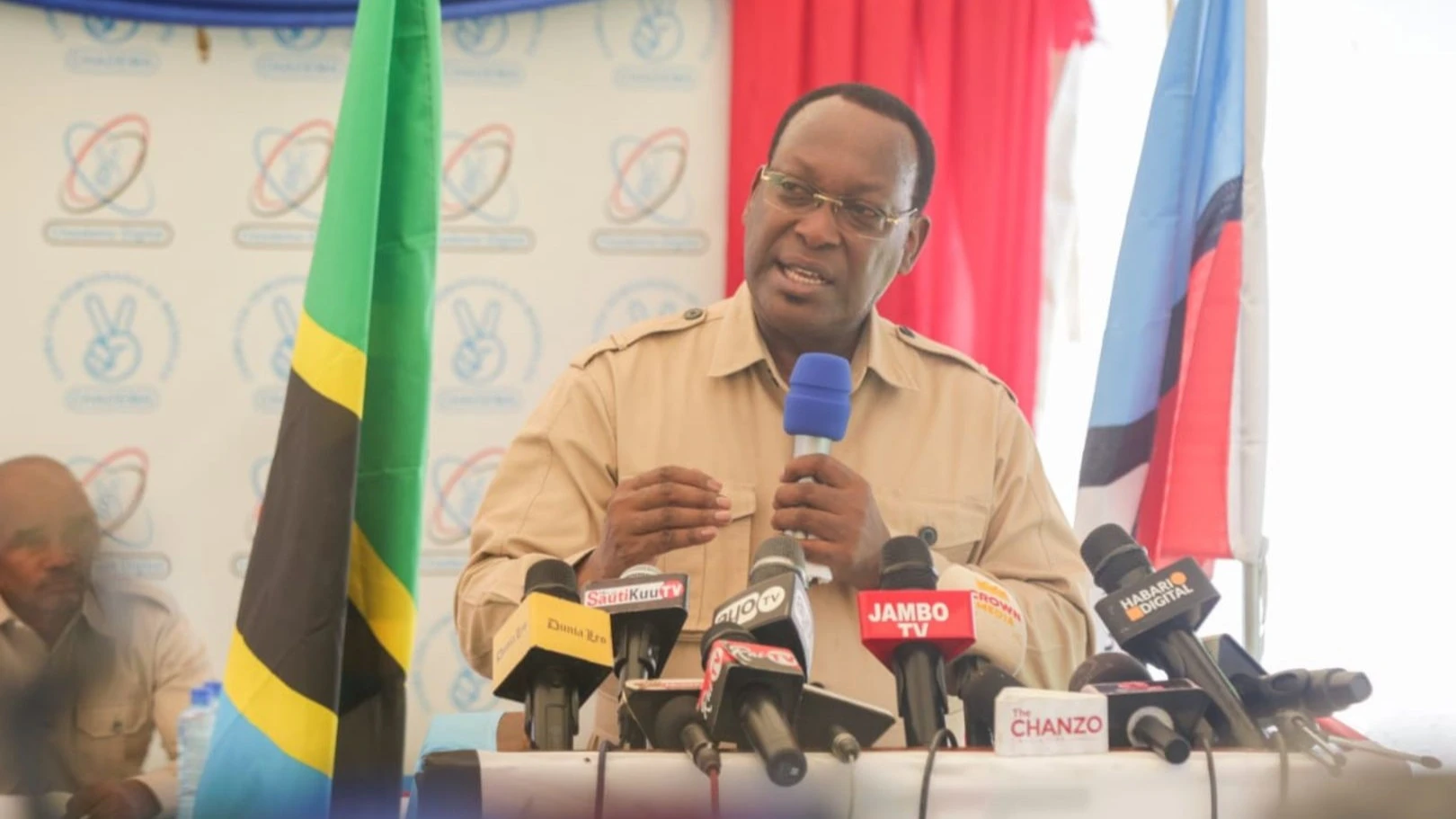No end in sight to hurdles to freedom of expression

THE suspension of Mwananchi Communications Limited’s (MCL) digital and online platforms for 30 days and the arrest of a number of journalists have stood among the hallmarks of the continued curtailing of freedom of expression by state organs in our country this year.
The year, now at its tail-end, has seen the country’s landscape in terms of freedom of expression marked by a complex interplay of cases of both progressive reforms and disconcerting regression.
Freedom of expression and the right to information in the country are guaranteed by the Constitution, with a number of laws promulgated to further this guarantee.
However, several restrictive laws, including those in fact enacted to safeguard and enshrine freedom of expression and access to information, contained impediments to the same.
Laws like the Cybercrimes Act (2015), the Statistics Act (2015 (as amended in 2018), and the Media Services Act (2016), have historically curtailed these freedoms.
Granted, under President Samia Suluhu Hassan’s administration, there have been efforts to ease these restrictions. However, this has been done mostly thanks to goodwill and not directly or deliberately with a view to rectifying any or particular oppressive sections or provisions in the laws.
And to show that the said goodwill does not overrun, supersede or eclipse the country’s laws, October 2024 saw the Tanzania Communications Regulatory Authority (TCRA) suspend MCL’s online platforms for one month, citing the publication of content deemed harmful to the country’s image. This action clearly underscores ongoing challenges to press freedom.
Incidents of concern
Meanwhile, October also saw the homepages of three leading Tanzanian newspapers focused on their own suspension over a video viewed as critical of the president, as concerns mounted over deteriorating press freedom ahead of elections.
TCRA suspended MCL’s online platforms for publishing – on social media – prohibited content it said sought to ridicule and harm the country’s reputation, prestige and status.
The one-month ban was part of a series of press freedom violations in the country, as human rights organisations warned of narrowing civic space ahead of late last month’s (Nov) local elections for mainland Tanzania and next year’s presidential and parliamentary elections scheduled for late next year.
The Citizen’s October 1 showed a woman apparently resembling the president flipping through television reports in which people complained about abductions and killings.
The content was published shortly after the murder of opposition politician Ali Mohamed Kibao, who was reported to have been forced off a bus destined for Tanga city from Dar es Salaam, beaten up – with his body then doused in acid.
Later the same month, TCRA accused privately owned YouTube-based Jambo TV of breaking the law in through the broadcasting of a piece criticism of two telecom companies.
The regulator took exception to the news channel’s airing of a claim by fiery Tundu Lissu, vice chairperson of the opposition Chadema, that Tigo (now, Yas) had shared his location data with the government prior to a 2017 attempt to assassinate him.
There was also journalist Erick Kabendera’s claim that Vodacom Tanzania had (illegally) shared his data with security personnel who arrested him in 2019.
Lissu’s statement resulted from a British court which was told by former parent company Millicom that it had concerns “about a local politician’s mobile phone data being passed to a government agency.”
A former Tigo employee meanwhile claimed that he was dismissed after raising concerns about surveillance.
But TCRA found fault on Jambo TB reportage of the issue faulty and therefore actionable. The regulator instructed Jambo TV to come up with written defence and appear before its Content Committee to explain why legal action should not be taken against it for reporting the issue.
Kabendera had sued Vodacom, submitting that the company had “facilitated” his arrest, but his case was dismissed in September. He intends to appeal.
Samia, who succeeded President John Magufuli after his death in mid-March 2021, initially lifted media bans and promised to improve conditions for the press.
However, her government has fallen short of fully overhauling restrictive laws, among them the 2020 online content regulations cited in the ban on MCL platforms and the case against Jambo TV.
In violations reminiscent of the anti-press tactics used under Magufuli, at least eight journalists have been arrested while covering opposition events in recent weeks.
The year witnessed several incidents that raised alarm over the state of freedom of expression in the country. In August, meaning a short two months before the MCL online outlets were suspended, opposition Chadema national Chairman Freeman Mbowe and Vice Chairman (Mainland) Tundu Lissu were arrested alongside some other officials and hundreds of supporters.
They were held ostensibly for holding a youth meeting in Mbeya Region banned by the authorities. Most were released on bail the following day, but their arrests have been criticised as attempts to intimidate the opposition ahead of then-upcoming and subsequent elections.
In September 2024, Chadema secretariat member Ali Mohamed Kibao was found murdered after being abducted. The opposition party alleged that he had been beaten and doused with acid, highlighting severe risks faced by political activists.
For some critics, the particular incident was the apex of abductions and arbitrary arrest targeting opposition politicians, activists and journalists –though some quarters vehemently denied this, suggesting that it a smear campaign meant to besmirch the image of government or state organs.
Arrests
Two MCL journalists were meanwhile arrested at different times in Dar es Salam in August while on official duty. One was a videographer and the other a photographer.
Both were later released, but their work had been interrupted and there was no compensation for whatever damage or loss they had suffered in the process. The arrests understandably added to concerns about press freedom and the safety of media practitioners.
Also in August, journalists Ramadhan Khamis and Fadhil Kirundwa of Jambo TV were arrested while covering a Chadema event in the southern city of Mbeya. They were released the following day on condition that they desist from publishing footage on the youth rally concerned.
In general, the incident led to the arrest of more than 500 people, mainly Chadema members.
Come September, police briefly detained reporter Mariam Shaban of the privately owned East Africa TV alongside privately owned Nipashe newspaper reporter Jenifer Gilla and photographer (correspondent) Jumanne Juma.
Earlier, in June, police had arrested three journalists in Mwanza Region: Dinna Maningo, Constatine Mathias and Samweli Mwanga. Maningo was arrested in Tarime in Mara Region and later transferred to Mwanza for allegedly publishing documents of confidential investigations.
Maningo’s arrest is linked to her reporting on the blog Dima Online on allegations against a former Simiyu regional commissioner, who has since been set free after a court found him not guilty.
More arrests
Two more journalists, Simiyu Press Club members Samweli Mwanga and Constantine Mathias, were arrested on the same month.
Police held Mwanga on June 16, later transferring him to Mwanza. While there, he gave a statement to the police and was set freed.
The Legal and Human Rights Centre issued a statement condemning Maningo’s arrest, saying: “The detention of this journalist goes against the Constitution and the laws of this country as well as the principles of democracy and freedom of the press.” LHRC called on police to choose between taking the journalist to court and releasing her.
By Correspondent Peter Nyanje
Top Headlines
© 2024 IPPMEDIA.COM. ALL RIGHTS RESERVED

























